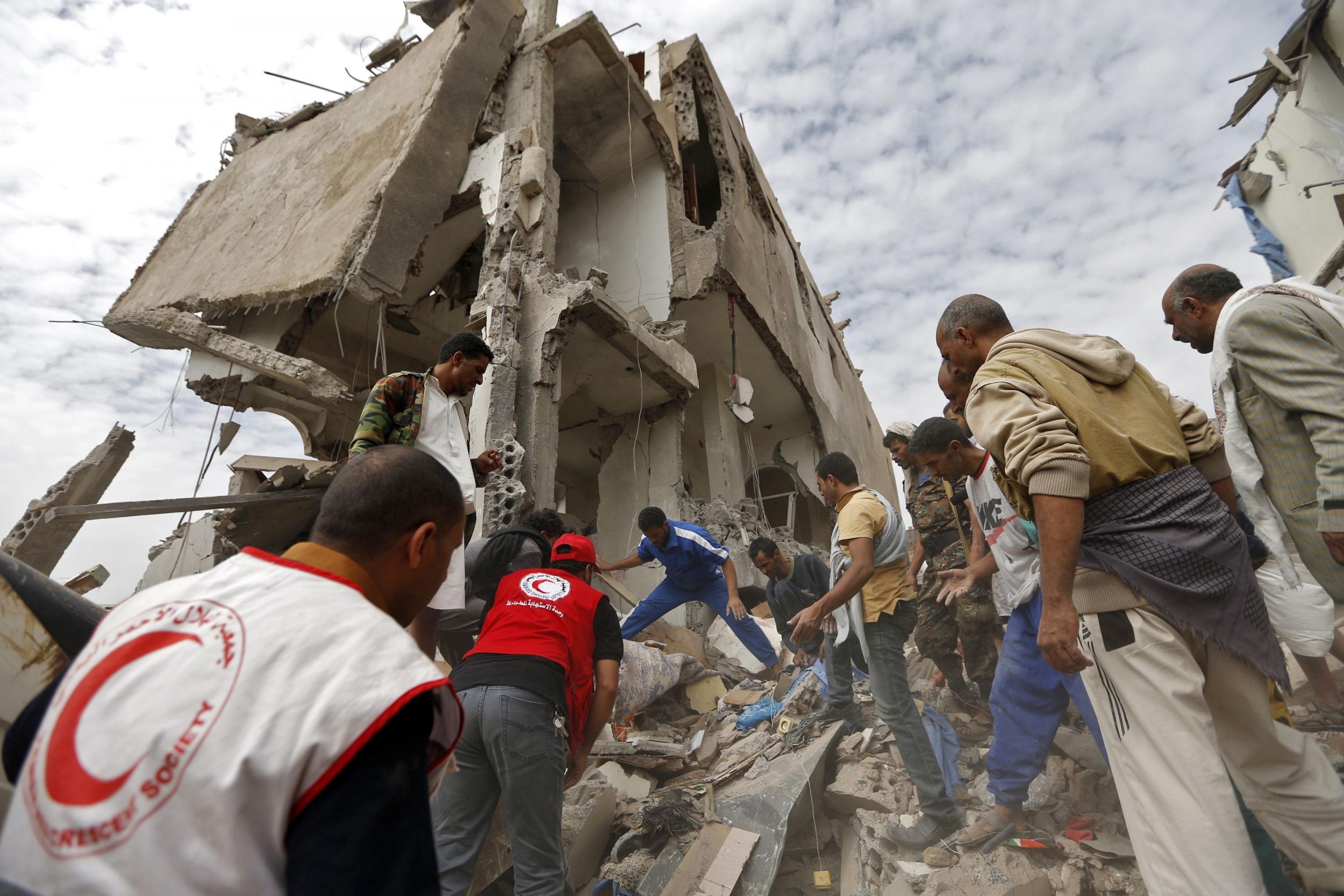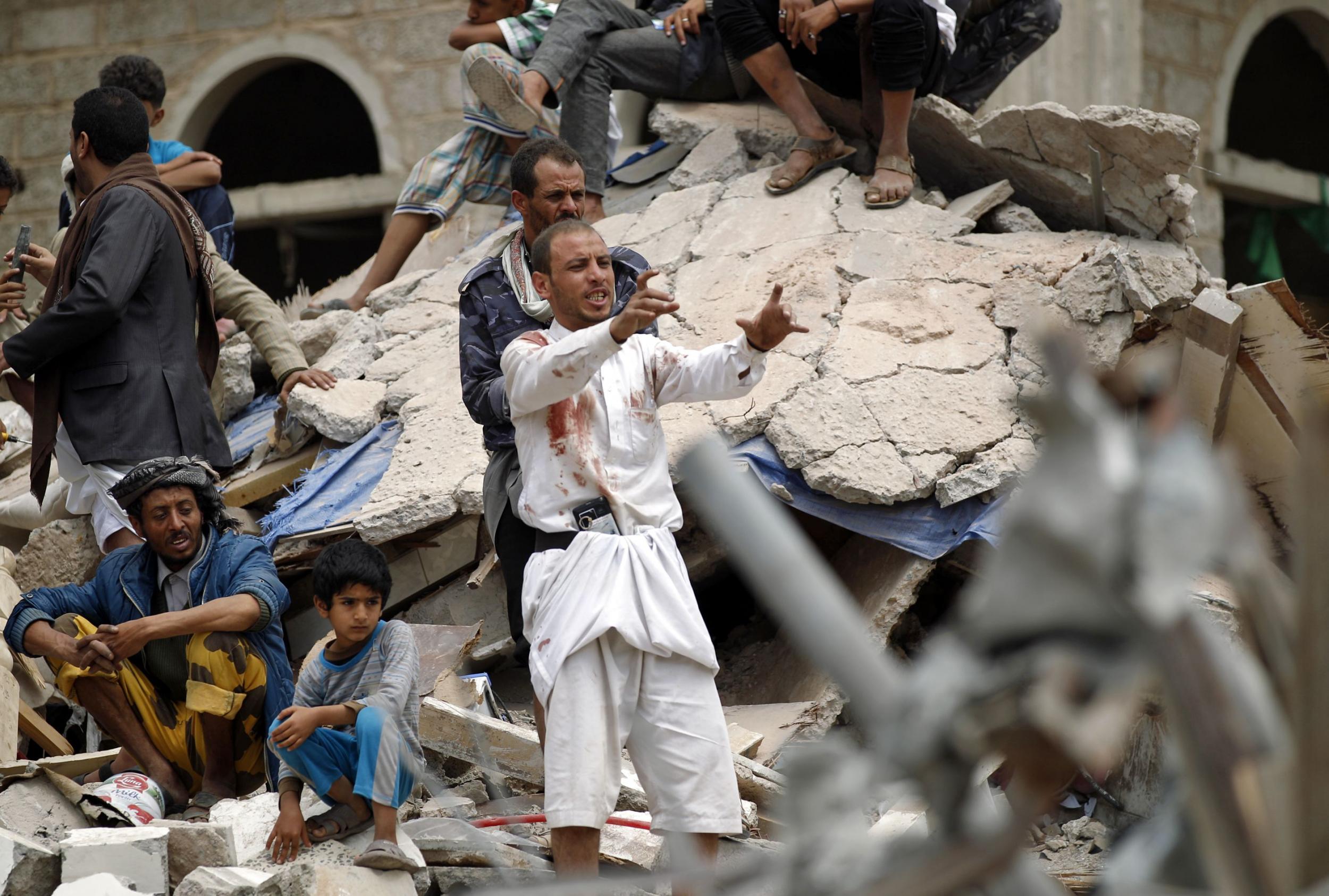Yemen: Saudi-led air strike on capital Sanaa kills at least 14 civilians including children
The deaths came as the UN issued a sharp rebuke towards a Saudi-led coalition over its bombing campaign

Your support helps us to tell the story
From reproductive rights to climate change to Big Tech, The Independent is on the ground when the story is developing. Whether it's investigating the financials of Elon Musk's pro-Trump PAC or producing our latest documentary, 'The A Word', which shines a light on the American women fighting for reproductive rights, we know how important it is to parse out the facts from the messaging.
At such a critical moment in US history, we need reporters on the ground. Your donation allows us to keep sending journalists to speak to both sides of the story.
The Independent is trusted by Americans across the entire political spectrum. And unlike many other quality news outlets, we choose not to lock Americans out of our reporting and analysis with paywalls. We believe quality journalism should be available to everyone, paid for by those who can afford it.
Your support makes all the difference.At least 14 people have been killed by Saudi-led air strikes on the Yemeni capital Sanaa, according to rescuers and witnesses.
Six children were among those who died in the overnight attack on a residential district, rescue workers said.
At least three houses in the Faj Attan area on the outskirts of the city were hit by the strikes, all but reducing them to rubble, witnesses told Reuters news agency.
It came as the UN issued a sharp rebuke towards Saudi Arabia and its allies over the bombing campaign on Yemen, demanding an independent investigation into air strikes on a Sanaa hotel this week that killed dozens of people.
The Saudi-led coalition is waging an air campaign against an Yemen's Shiite Houthi rebels and forces loyal to a former president. The rebels control much of the country's north, including Sanaa.
The coalition is trying to restore the internationally recognised government of President Abed Rabbo Mansour Hadi to power.
The UN has said 58 civilians were killed in Yemen in the week up to Thursday, including 42 by the Saudi-led coalition. The rest of the deaths were blamed on unknown armed men and groups linked to the rebels.
"We remind all parties to the conflict, including the coalition, of their duty to ensure full respect for international humanitarian law," said UN human rights spokeswoman Liz Throssell.

Up to 60 people, including civilians and Houthi rebels, are thought to have keen killed in coalition strikes near Sanaa on Wednesday.
Witnesses said a two-storey hotel in Arhab, 35 kilometres (22 miles) north of the capital, was completely destroyed in the attack, leaving two bodies hanging from the upper floor.
A second strike hit a checkpoint controlled by Houthis a few kilometres away.
Saudi Arabia and its regional partners have used Iran's influence over Yemen's Houthi rebels to justify an extensive bombing campaign since March 2015.
The air strikes, carried out at the request of the exiled internationally recognised Yemeni President Abdrabbuh Mansour Hadi, have been repeatedly criticised for causing unnecessary loss of civilian life in a country that also faces a catastrophic cholera epidemic.
Last week a draft UN report accused the coalition of killing hundreds of children in Yemen.
The report, which has yet to be made public and could still be changed, estimated that 51 per cent of all child deaths and injuries in Yemen last year were the result of the Saudi-led military operation. It said the death toll was “unacceptably high”.
Western governments, including the US and the UK, have also faced criticism for providing logistical support and political backing to the nine-nation coalition. British companies have continued to sell weapons to Saudi Arabia despite growing concern about civilian casualties.
Saudi Arabia has always insisted that its operations follow international guidelines.
Join our commenting forum
Join thought-provoking conversations, follow other Independent readers and see their replies
Comments